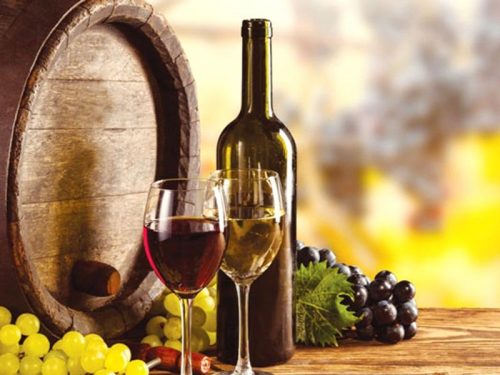Wine industry offers cheerful vocations
The rich variety of red, white, and sparkling wines which India now produces has opened up a whole cellar of tantalising career opportunities for oenophiles to mix business with pleasure.

With economic liberalisation and globalisation having precipitated a huge change in the lifestyle of Indians, wine is beginning to flow as easily as conversation in trend-setting middle class households across the country. As a growing number within the jet set are becoming conscious of the adverse health consequences of hard alcohol, there’s been a phenomenal growth in the wine-making industry in the past five years. The rich variety of exquisite red, white, and sparkling wines which India now produces has opened up a whole cellar of tantalising career opportunities for oenophiles (wine connoisseurs) to mix business with pleasure. Whether you want to produce, distribute, sell, teach winemaking techniques, taste it, or write about it, there’s expanding accommodation in this sunrise industry.
Oenology. Known as an oenologist, a professional winemaker needs a degree in oenology (winemaking) or viticulture (cultivation of grapes). An oenologist is responsible for every facet of winemaking; not only does he decide on the quality of grapes, but also on how to blend them to create the best flavours. An oenologist needs a sharp understanding of climatic factors which affect the quality of grapes and the expertise to coalesce these factors to produce marketable blends and flavours.
Vineyard manager. Another career option in this fast-track industry is of vineyard manager who supervises grape plantation and maturation right from planting, irrigation, pruning, pest control, and harvesting. Vineyard managers also discharge admin duties such as preparing budgets, hiring, and training workers.
Cellar master. The cellar master comes into the picture after the grapes are picked and brought to the winery. Cellar masters manage winemaking equipment such as tanks, barrels, gases, bottles, and work closely with oenologists to produce wines in accordance with their prescription and specifications.
 Wine taster. After a wine is produced and is ready for bottling, it must pass muster with professional wine tasters. Quite obviously, tasters must have the palate and discrimination ability to differentiate and classify varieties of wines and nuances of flavours. If it’s lacking, the taster suggests ways and means to improve it.
Wine taster. After a wine is produced and is ready for bottling, it must pass muster with professional wine tasters. Quite obviously, tasters must have the palate and discrimination ability to differentiate and classify varieties of wines and nuances of flavours. If it’s lacking, the taster suggests ways and means to improve it.
Sales and marketing. With the demand for wines of all vintages, flavours, and prices booming, there is no dearth of openings for wine marketers. Starting as a sales rep, importer/exporter, or distributor, the rise to the position of marketing director could be swift.
Apart from these directly connected professions, job opportunities galore in the fields of writing, training, and wine education.
The annual growth of wine in the market estimated at 30–35 percent is not likely to slow down, at least not for another decade. Domestic consumption may be fuelling it but wine producers like Indage and Sula are also exporting large volumes overseas. Thus there is great opportunity for all those interested in working in this industry — in the production of wines, as a wine taster, as a sommelier, or in marketing and distribution.
Entry into this fast-moving consumer industry is facilitated with a degree in oenology or viticulture. However this is not mandatory since Indian academia presently does not offer specialised degree programmes. The usual entry route into the industry is a bachelor’s degree in science with specialisation in food technology/chemistry/
microbiology. However for those with deep pockets, the best option is to enroll in a study course abroad in the Universite du Vin (University of Wine) in the Rhone Valley which offers a range of courses including five to six months diploma courses in wine tasting or in a California wine university, or to intern with a winery to acquire hands-on experience of wine production and marketing processes. The Bordeaux Business School of France offers a wine MBA. The good news is that the Maharashtra government has started two oenology institutes at Sangli and Nasik respectively, to provide specialised education in the art and craft of winemaking.
A career in the wine industry can be quite challenging. An oenologist has to keep calculating the effect of factors like weather, climate, insects, soil, and other variables to succeed in this highly competitive industry. But simultaneously one gets to interface with the best hotels and restaurants, travel, and savour gourmet cuisine and exotic wines.
Quite clearly an industry for bon viveurs.
(Excerpted from 101 Great Careers for the 21st Century by Indra Gidwani, 2016)
















Add comment